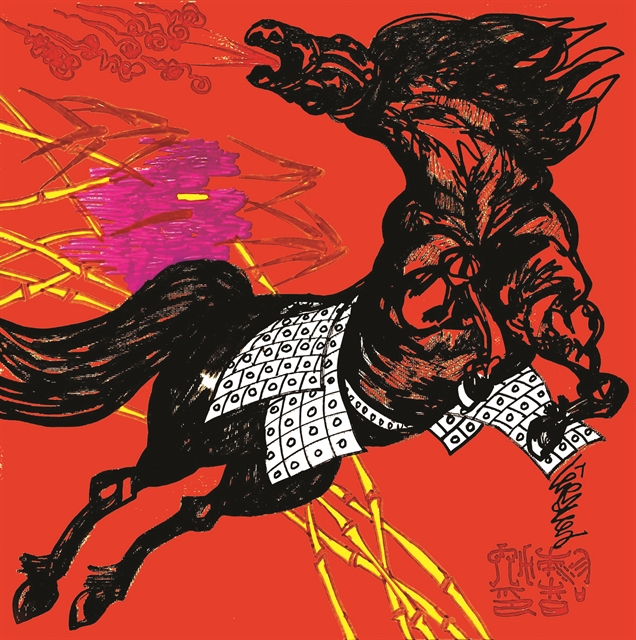 Life & Style
Life & Style

Sơn Đồng Handicraft Village in Hoài Đức District, 20km west of downtown Hà Nội, has long been the source of some of Việt Nam's finest carved wood worship objects.
Sơn Đồng Handicraft Village in Hoài Đức District, 20km west of downtown Hà Nội, has long been the source of some of Việt Nam's finest carved wood worship objects.
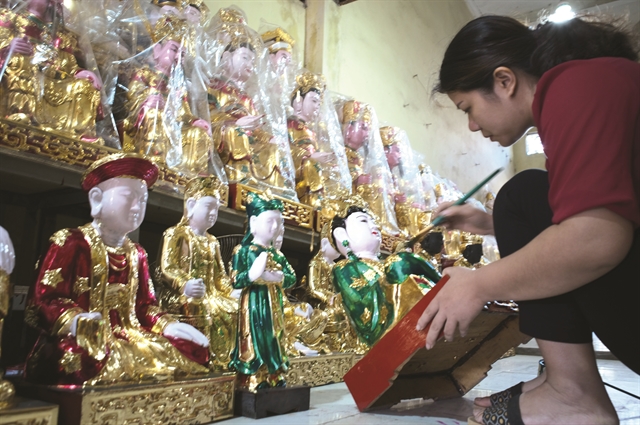
|
| A local woman puts the final touches on a statue. —VNS Photos Việt Thanh |
The village is home to 300 families, 80 per cent of which make their living through the craft. Some 1,000 residents are skilled artisans.
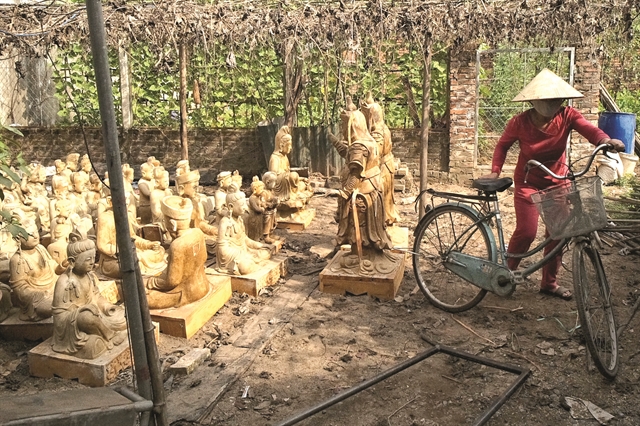
|
| The village produces holy statues of Saint Trần, the Buddha and countless other famous figures. |
The village’s products include holy statues of saints, the Buddha and other Buddhist figures. They are commonly found in pagodas, temples and historic site throughout the country's northern region.
During the American war (1954-1975) and the State subsidy period (1976-1986), the trade faded somewhat. But in 1983, artisans Nguyễn Đức Cường and Nguyễn Chí Dậu started to revive the craft. They opened training classes for locals who went on to hand down the secrets of the career to their families.
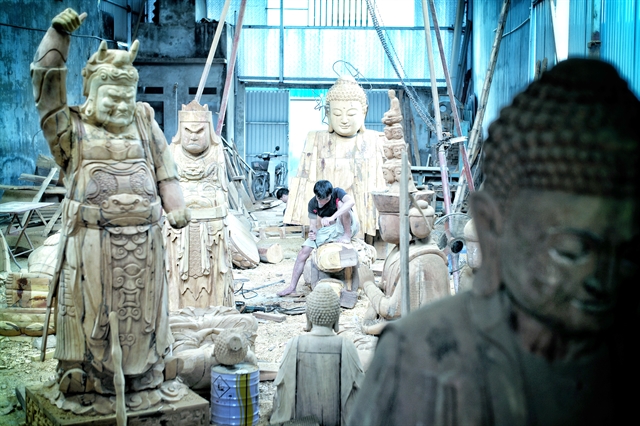
|
| Jackfruit wood is brought to the village from provinces such as Thanh Hóa, Nghệ An, Thái Nguyên and Phú Thọ for use by the artisans. |
Today the village's products are renowned for their delicate, vivid details.
Visitors can order any statue that strikes their fancy, and the local artisans will skilfully craft it without the need for a model.
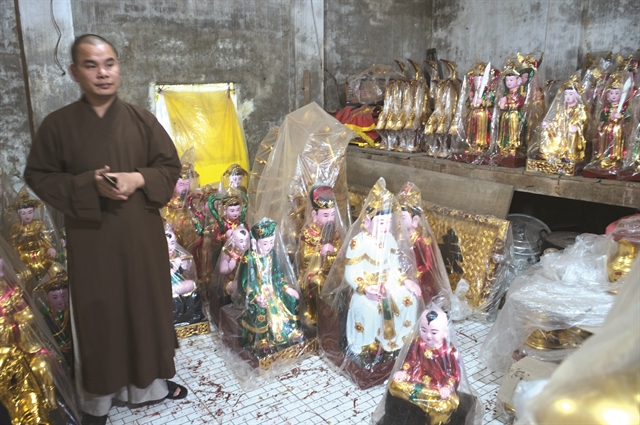
|
| Visitors can order any statue that strikes their fancy, and the local artisans will skilfully craft it without the need for a model. |
The village’s products now account for some 50 per cent of the worship statues available in Việt Nam and have been exported to many other countries.
The basics of the craft are widely known and are handed down through the generations, but each artisan also has their own closely guarded secrets.
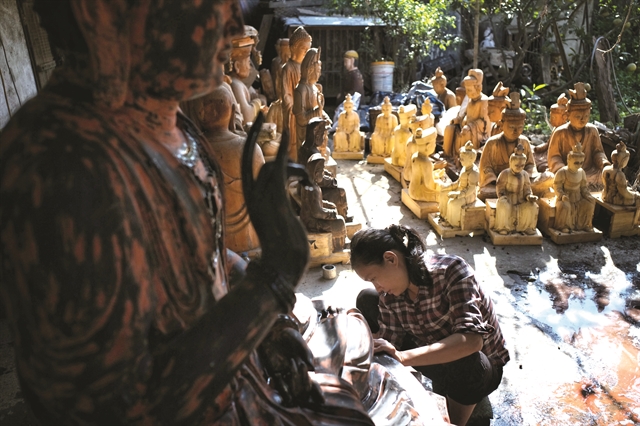
|
| The village has become a popular destination for both domestic and foreign tourists. |
The first important stage is selecting wood. Wood from jackfruit trees is the best material for carving due to its softness, flexibility and durability.
Jackfruit wood is brought in from other provinces like Thanh Hóa, Nghệ An, Thái Nguyên and Phú Thọ. After being cut into pieces, the wood is carved then polished.
Painting the sculpture is another important step and it requires careful techniques such as the use of lacquer.
A mixture of pain and silt is used to cover the sculpture. Then the artisan polish it with water and stone until the coating is this and shiny.
The village has also become a popular destination for domestic and foreign visitors.
The village has registered dozens of trademarks for gold and silver gilded carved wood products created by local artisans. —VNS